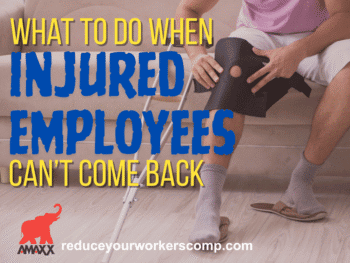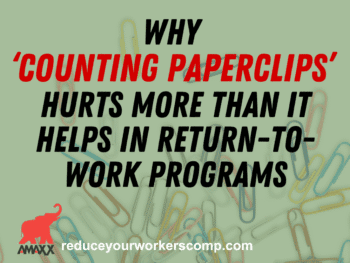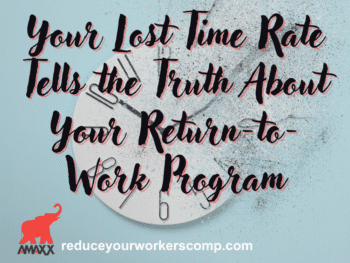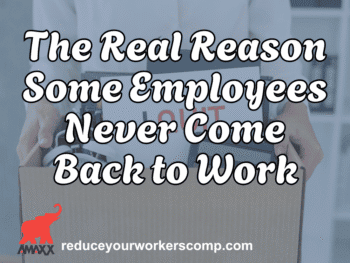According to Adrienne Pietropaolo, a Staff Attorney with the Columbus office of Barnes & Thornburg, the overall mission of the Ohio Bureau of Worker’s Compensation (BWC) is to “return a person to work in the same capacity” as they held prior to a work-related injury. While that is a lofty and respectable goal, knowing when it’s the right time for an employee to return to work is not cut-and-dried.
Determine When An Employee Can Return To Work
So just what does an employer need to know when determining when an employee can come back to work?
First, Pietropaolo says the business owner should consult with the staffer’s treating physician to discuss whether or not the employee has recuperated sufficiently to resume work. Not only that, a determination must be made if the employee can return to the position they held prior to being injured. If they can’t, a decision must be made whether there is an available job within the company the employee can complete.
Information imperative for the physician to have when determining whether an employee can return to work is an accurate job description. “That information will impact the decision about whether the employee can return to work” in their prior capacity, Pietropaolo says.
Generally, the employer benefits if the employee can return to the job they held prior to being hurt so the company doesn’t have to find and train a new person to take on those responsibilities, she says.
However, she cautions, an employer must be able to recognize when an employee cannot return to their prior post due to their injury. “That’s important because the company must determine if they need to hire someone new or if they can hold the job open (while the employee recuperates) while maintaining the same high level of productivity” if the job is unmanned for a time, she says.
That determination is a “fine line,” says Pietropaolo.
Recognize Employment At-Will State Laws
According to Hillard Abroms, a solo practitioner in Columbus with 42 years of experience, employers should also recognize if their business is located in an employment at-will state. Although employment at-will states are in a distinct minority, employers in those jurisdictions “can discharge an employee for any reason, but it better be a good reason or no reason at all,” he says, adding the caveat, “unless the employer made enforceable promises relating to instituting or ongoing employment.”
If an employer makes promises of employment without any consideration, they are not enforceable, says Abroms. For example, an offer of lifetime employment can be such a long-term promise, it is not enforceable, he says.
Abroms cautions employers to be careful when considering when to return an employee to work. “Be consistent,” he urges.
Furthermore, even if a treating physician determines a staffer is capable of returning to work doesn’t necessarily mean the company has to agree with that assessment. “An employer still has the right to review the determination and rely on their own expert” when deciding if an employee can return to work, and if so, in what capacity, Abroms says.
“An employer has to protect themselves. If they put a returning employee in a dangerous situation, the employer can be liable,” he says.
Return Employee To Positive Environment
Another matter to be wary of is ensuring the work environment an employee returns to is not hostile to them in any way. Says Abroms, “It’s imperative to put in perspective why they are returning to work and how that can impact your business.”
He advises company owners to consider what the employee is returning to work from and what the staffer will find once they resume work.
“Once you make accommodations (for one employee), you might have made the commitment to accommodate similar employees,” cautions Abroms.
Author Tami Kamin Meyer, is an Ohio attorney and writer whose byline has appeared in countless publications such as Better Homes and Gardens, The ABA Small and Solo Practitioner newsletter, The National Trial Lawyers magazine and web site, Ohio Lawyers Weekly, Ohio Lawyer and Plaintiff Magazine. She is also a contributor to the web sites of Successful Business News and Progressive Law Practice. Contact: tkmwrites@gmail.com



























